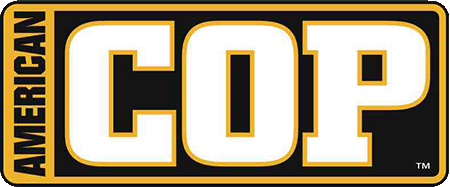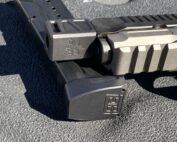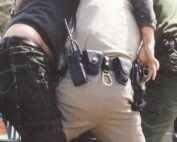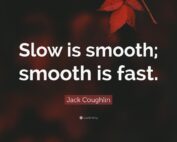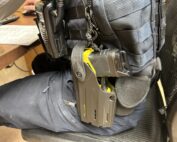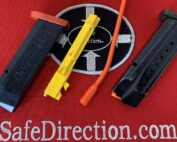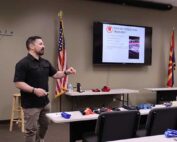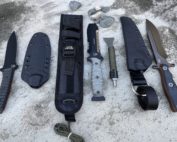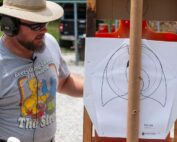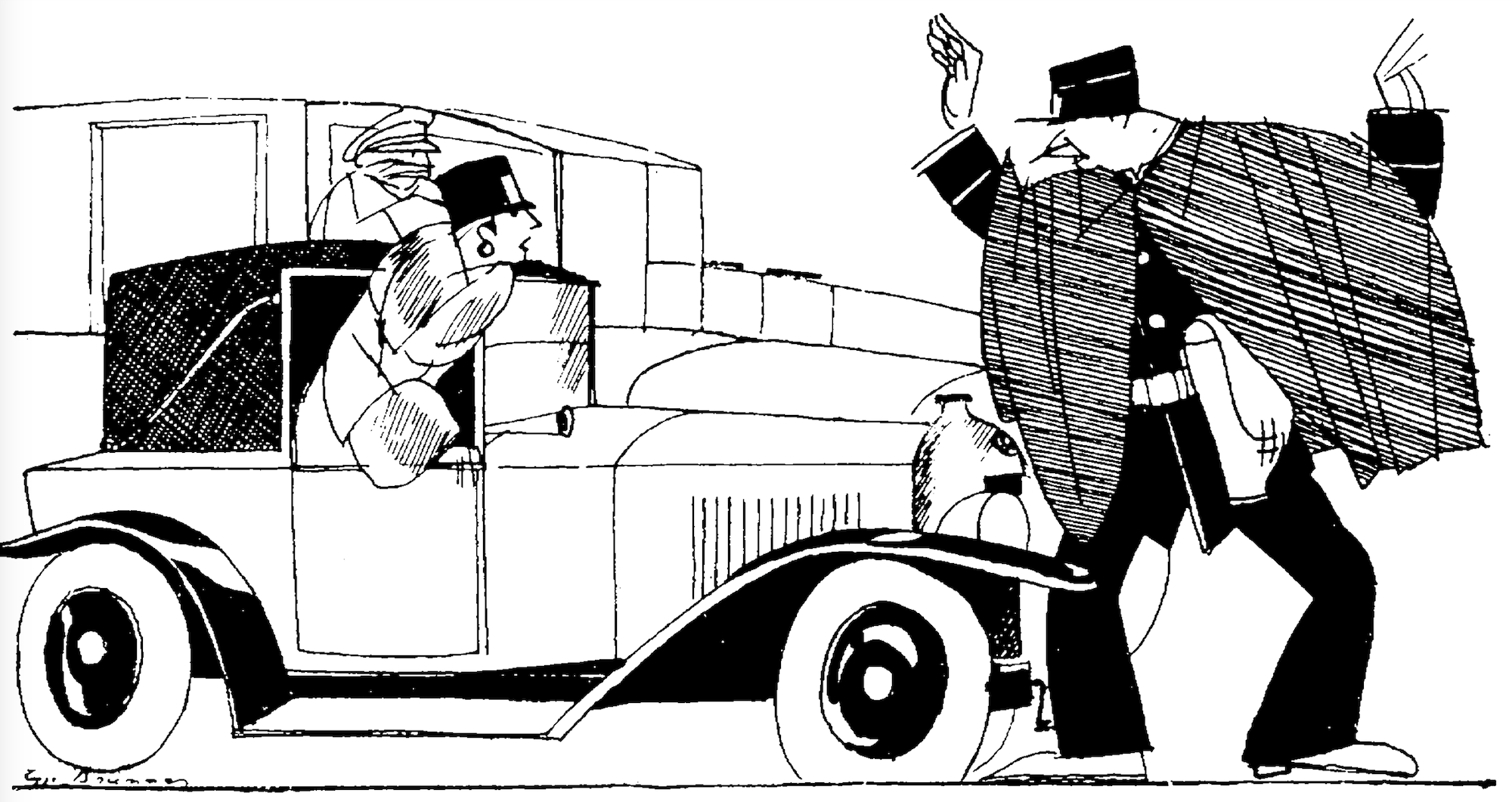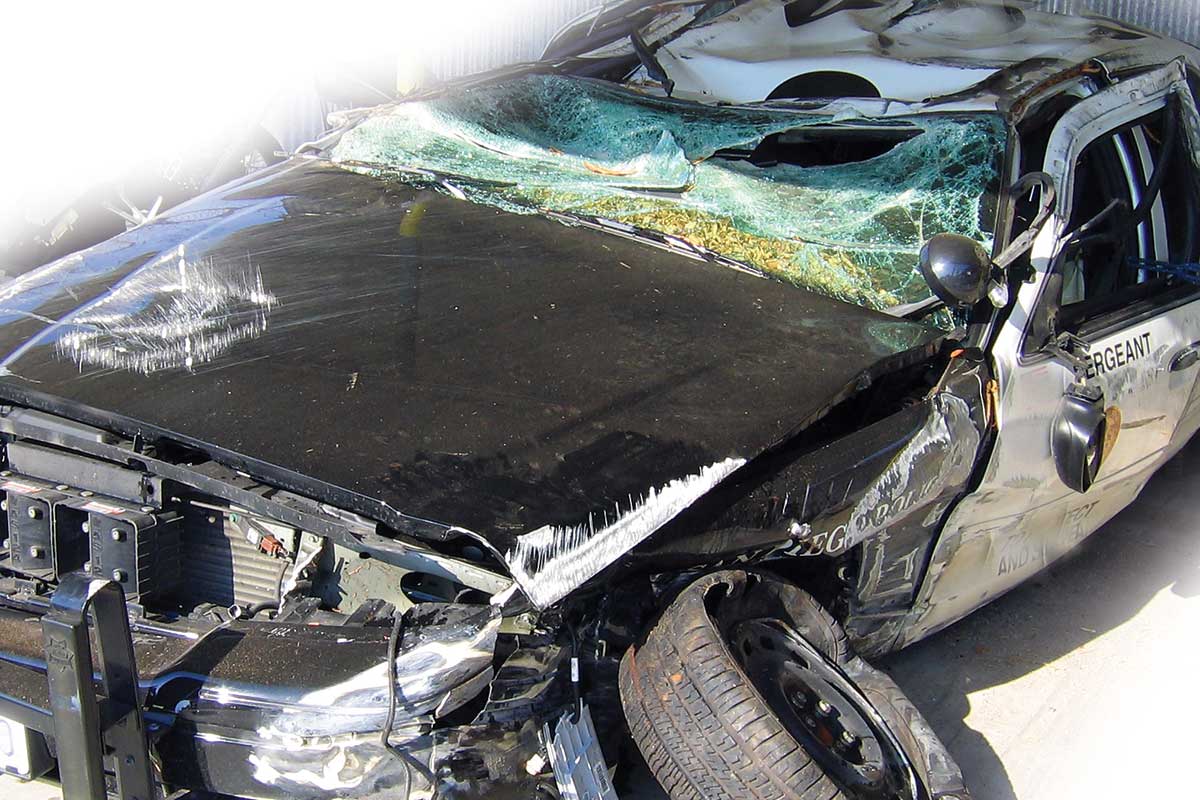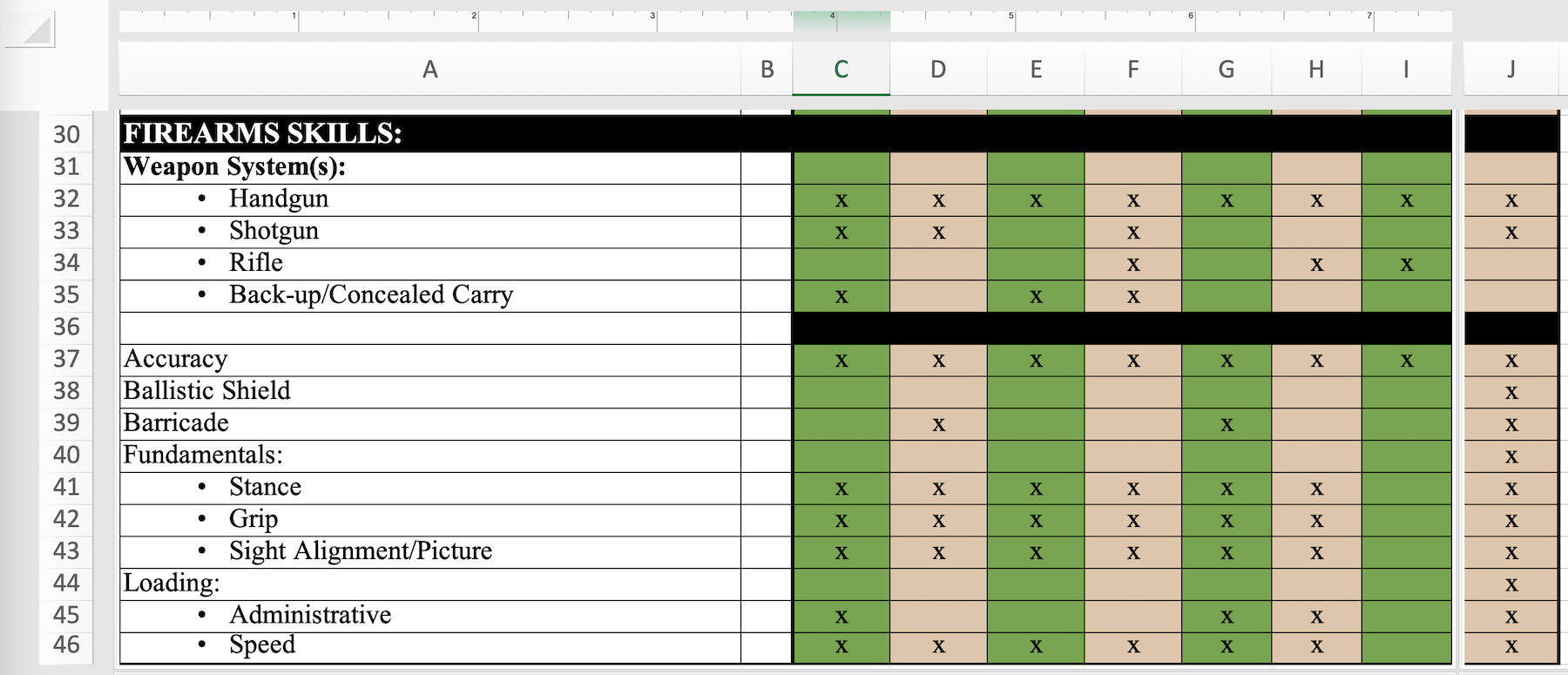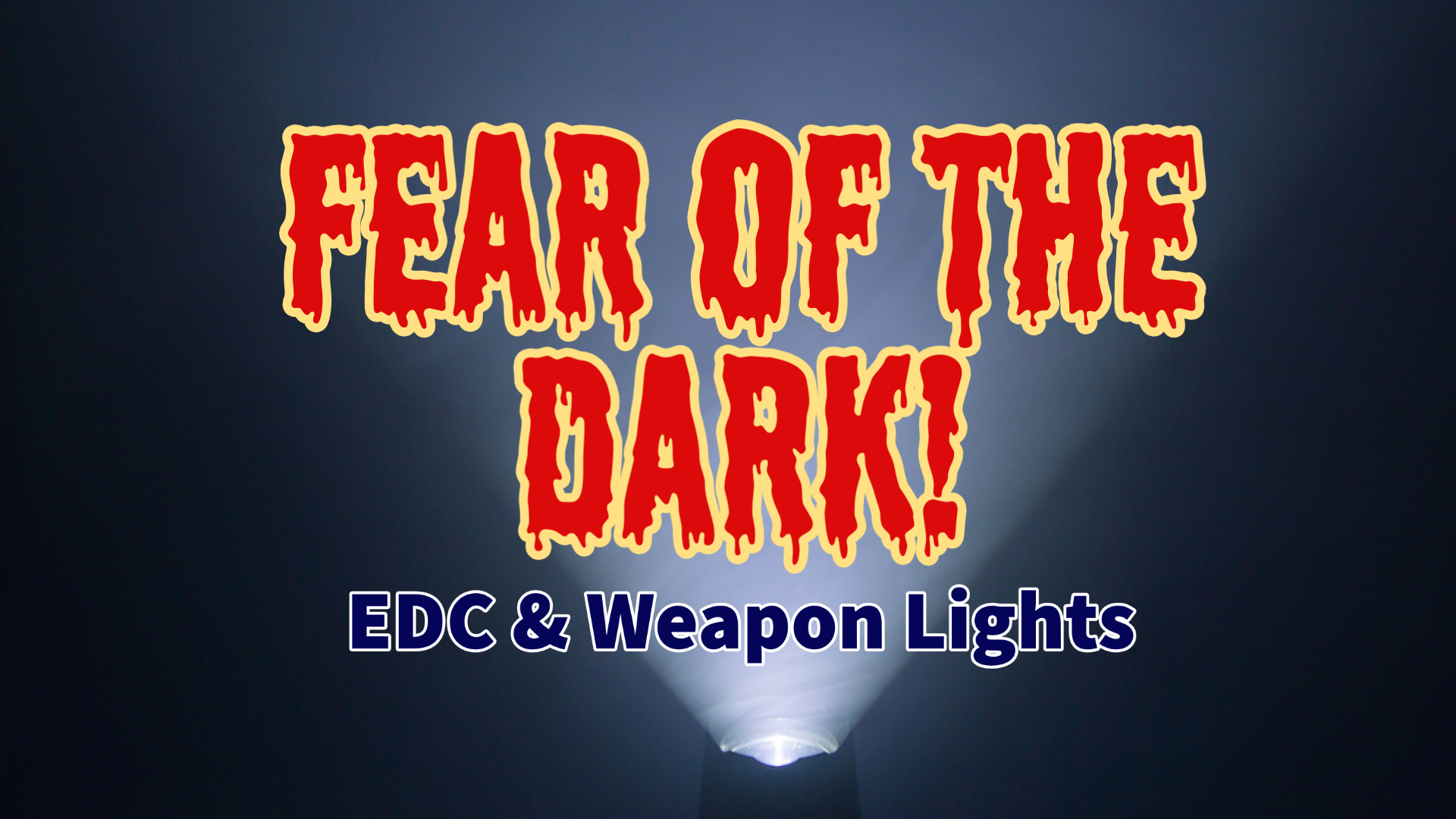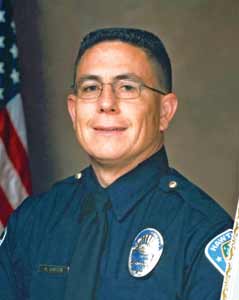
VANTAGE-3
#74: Firsthand
Editor’s note: In honor of National Police Week and Peace Officers Memorial Day on May 15, I give you this guest editorial by Ti Goetz. I was incredibly moved by his words, and can speak with authority when I say officer funerals never get any easier. SH
Officer Andrew Garton (center) doing what he loved.
The last photograph ever taken of Officer Andrew Garton was snapped only minutes before his death. It shows Andrew riding his motor, pointing off into the distance, doing a job he clearly relished and working with the fellow officers he considered brothers. A few short minutes later, Andrew lay dying in the street, the victim of a tragic collision with another motor officer. Andrew was the 74th officer to die in the line of duty in 2011, on May 26 — the first ever in the 89-year history of Hawthorne Police Department.
In one brief, jarringly violent moment the man, the motor, the friend, the father, the son, the husband, the Andrew Garton we knew was gone. While he was released from all the cares and concerns of this world, for those left behind, the heartache, pain and suffering were only just beginning.
We know death is a possibility, yet consider it in an abstract way as we fill out our wills, insurance papers or next of kin forms. Its looming potential is talked about, and used as a training tool. We understand it happens — in some other place, at some other department, to some other person, not to someone we know and work with. Then reality comes crashing down.
I don’t think anyone on our department will ever forget where they were when they got the news that day. I just called a friend at work when I heard the wail of sirens and the squawking of excited radio traffic in the background. My friend told me, “Andrew’s down; it doesn’t look good.” A short time later, I learned Andrew died at a nearby trauma center. The information quickly worked its way through the department, and the hospital became the focal point for the shocked masses to gather. How could this have happened? Why? Who was at fault? What about his family? What do we do now? The questions were endless, the answers … there were simply not enough.
From the beginning, the outpouring of support from fellow officers, neighboring agencies and the community at large was overwhelming. Assistance was unconditional and without regard for cost, manpower, time or trouble. The Los Angeles Sheriff’s Department volunteered a helicopter to pick up Andrew’s wife and two young sons, flying them directly to the hospital. And in an incredible show of selfless support, our neighboring cities arranged to take over the business of policing our city for the next 48 hours. Unbelievable.
Despite our confusion, uncertainty and lack of experience with the death of one of our own, after those first few terrible hours, the dawning of our new reality began to set in. The machine that is law enforcement slowly began to grind into motion again. Our department, which didn’t even have a “death book” to guide us, had one lent to us by a neighboring agency. Command staff started planning and designing a strategy to deal with the myriad of issues now presented. Assignments and duties were drawn up and handed out; grief counselors, clergy, and psychologists were summoned for those in need; 24/7 vigils over Andrew’s body and at the family home began to be organized; death benefits began to be examined and funeral arrangements considered — the logistics of managing an on-duty death.
A line of duty death really tests your department as a whole, especially supervision. With so many people hurting, yet having so much to be done in an extremely short amount of time, there was no moment for those in charge to absorb the loss, let alone grieve. They had to struggle with not only the psychological impact, but also the logistical tasks associated with an officer’s on-duty death. To arrange a funeral attended by thousands, in one short week is, by itself, an immensely daunting task. Everyone had to step up, hold it together and do what was needed. Many had to put their personal feelings aside as best they could, and focus on the mechanics. One step at a time, one job after another. Move forward. Get it done.
In one of the greatest contributions our department could have asked for, the Los Angeles Police Department sent us two highly experienced members of their Employee Assistance Unit, which specializes in dealing with employee deaths. These officers spent most of the next eight days walking our agency through the process. They worked hand-in-hand with our department to ensure we did things right, in a timely fashion, and with due respect for Andrew and the wishes of his family. We are immensely grateful for their assistance.
Despite the circumstances, all of us felt nothing but pride in our department and the men and women (both uniformed and non-sworn) who make it up. Everyone rose to the occasion with grace, pride, self-sacrifice, commitment and a togetherness you rarely see in police organizations anymore. Politics, egos, personal agendas and personal costs were cast aside and left where they should have always been: on the sidelines. From soon after Andrew fell, until his burial — out of the worst, came our best.
Law enforcement is a brotherhood, always has been, always will be. Sometimes we lose faith in the concept, but it’s nonetheless true. You’ll never see it more clearly displayed than in times of peril or moments of tragedy. Despite the overwhelming emotions of that day, our hearts swelled with pride, and together we sent Andrew off in a manner befitting a friend, a colleague … a fallen brother.
As we stood in ranks that final day and gazed out upon the sea of blue, we couldn’t help but be proud. Proud of a profession that has men and women willing to put their lives on the line to ensure the safety of those who rely upon them; proud of our long history of honor, duty, courage and sacrifice — and certainly, definitely, proud of Andrew. As the final sad notes of Taps echoed, each of us in our own way, bid final farewell to Officer Andrew Garton.
Enjoy your job and all the challenges that come with it. Revel in your friendships. Above all, cherish your family and loved ones. Appreciate it daily, without fail. Life is too short to do otherwise.
By Suzi Huntington
>> Click Here << To Read The American COP May 2012 Issue Today!
Order Your Copy Of The American COP May 2012 Issue Today!
